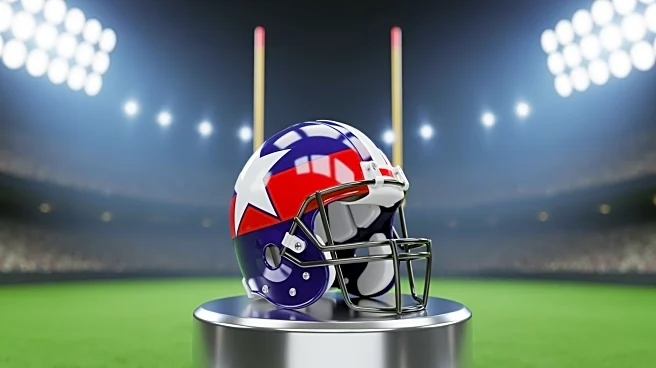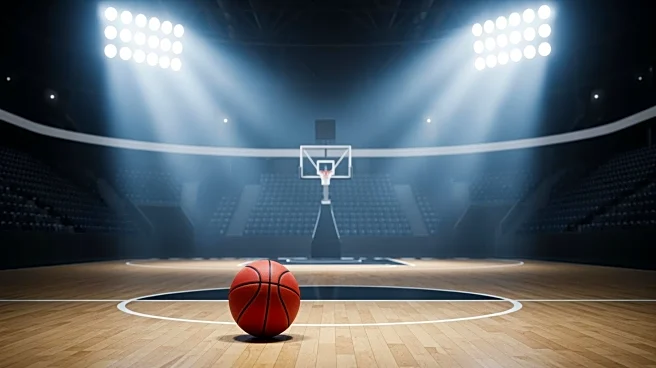What's Happening?
Gunner Stockton, the quarterback for Georgia, played a pivotal role in leading his team to a 43-35 victory over No. 5 Ole Miss. Stockton threw four touchdown passes and rushed for another, showcasing his resilience and skill despite concerns over an oblique
injury earlier in the week. The Bulldogs were trailing 35-26 in the fourth quarter but managed to rally under Stockton's leadership, scoring on every possession until the final moments of the game. Stockton completed 26 of 31 passes for 289 yards and ran for 59 yards on 10 carries. His performance was particularly impressive given the absence of one of Georgia's top receivers, Colbie Young, who was injured early in the game.
Why It's Important?
This victory is significant for Georgia as it demonstrates the team's ability to overcome adversity and perform under pressure. Stockton's leadership and performance could bolster his reputation and solidify his position as a key player for Georgia. The win also impacts the SEC standings, potentially affecting playoff considerations and rankings. For Ole Miss, the loss could be a setback in their pursuit of a higher ranking and playoff contention. The game highlights the competitive nature of college football and the importance of resilience and adaptability in sports.
What's Next?
Georgia will have a break before their next game against Florida, allowing Stockton and the team to recover and prepare. The victory over Ole Miss may boost team morale and confidence as they approach future games. Ole Miss will need to regroup and address the defensive lapses that allowed Georgia to score consistently in the fourth quarter. Both teams will likely analyze the game to improve strategies and performance in upcoming matches.
Beyond the Headlines
Stockton's performance may influence his future prospects, including potential NFL considerations. The game also underscores the importance of player health and management, as Stockton's ability to play despite an injury was crucial to Georgia's success. The dynamics of college football, including player transfers and injuries, continue to shape team compositions and outcomes.
















